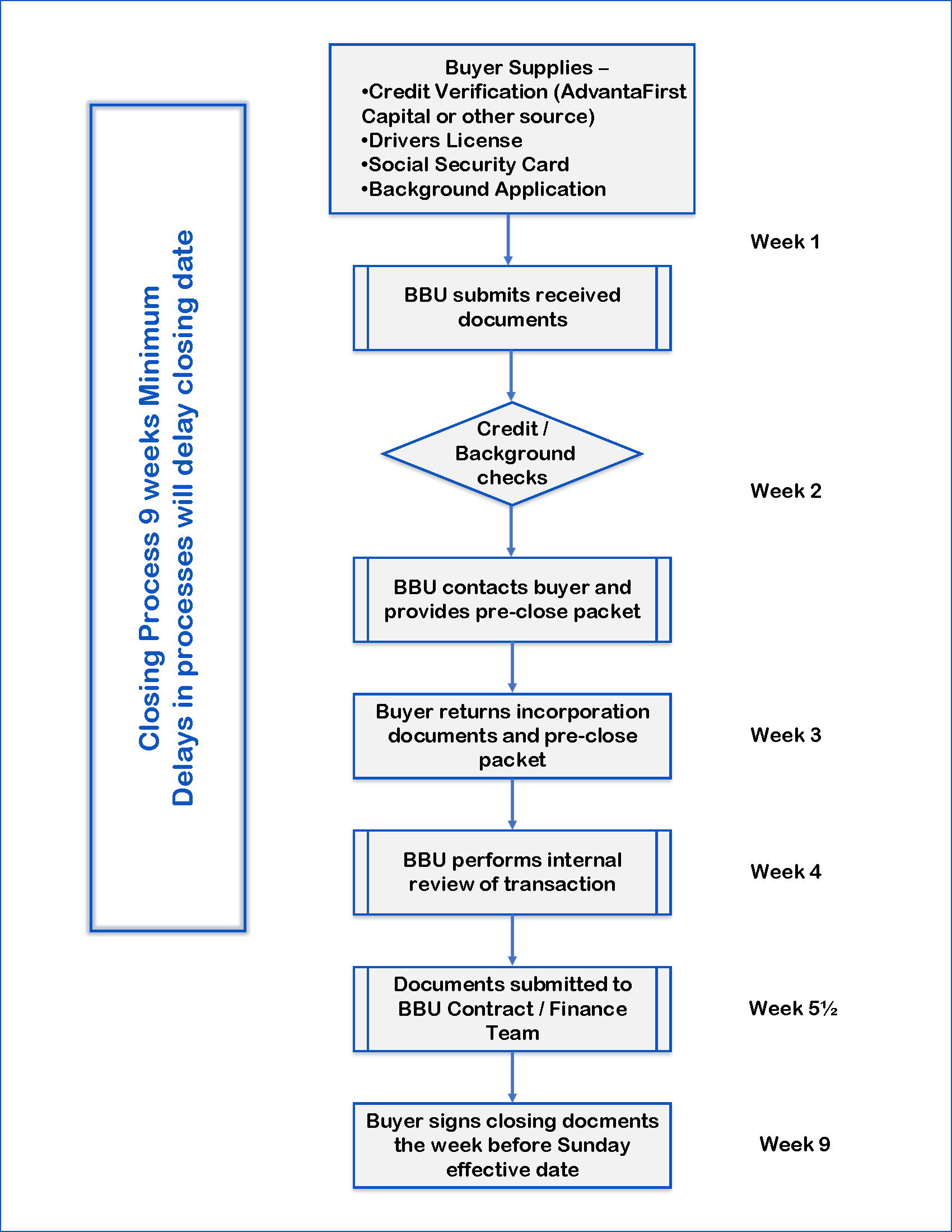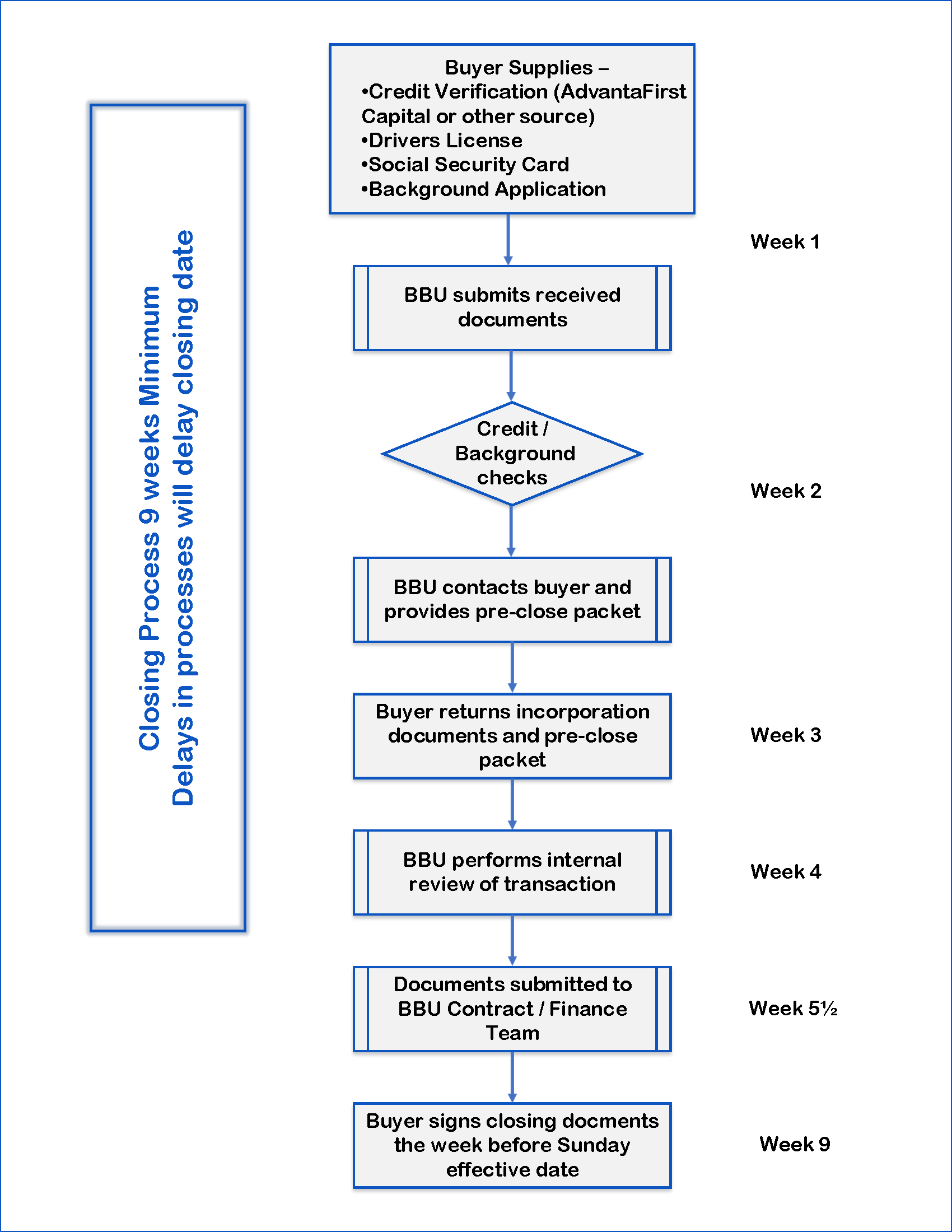It takes roughly 9 weeks to purchase a route. The length of time is dependent on how long it takes the incorporation paperwork to be received by BBU.

 The route purchase process begins with the buyer going through background and credit verification, applying to Advantafirst Capital or any other source of funding, and submitting a copy of a drivers license and social security card. About 1 week is taken to receive these items back. During week 2, a BBU contact will provide a pre-close packet to the interested buyer. A week later (week 3) the potential buyer supplies incorporation paperwork and returns the completed pre-close packet. During week 4 and 5, BBU performs an internal review of the transaction and submits the information to the finance team. Assuming everythign is approved, a closing date is scheduled roughly 3 weeks out. The route purchase date will be effective on Sunday of the identified week. A volluntary orienation is offered beginning 3 weeks before the Sunday of route ownership.
The route purchase process begins with the buyer going through background and credit verification, applying to Advantafirst Capital or any other source of funding, and submitting a copy of a drivers license and social security card. About 1 week is taken to receive these items back. During week 2, a BBU contact will provide a pre-close packet to the interested buyer. A week later (week 3) the potential buyer supplies incorporation paperwork and returns the completed pre-close packet. During week 4 and 5, BBU performs an internal review of the transaction and submits the information to the finance team. Assuming everythign is approved, a closing date is scheduled roughly 3 weeks out. The route purchase date will be effective on Sunday of the identified week. A volluntary orienation is offered beginning 3 weeks before the Sunday of route ownership.

